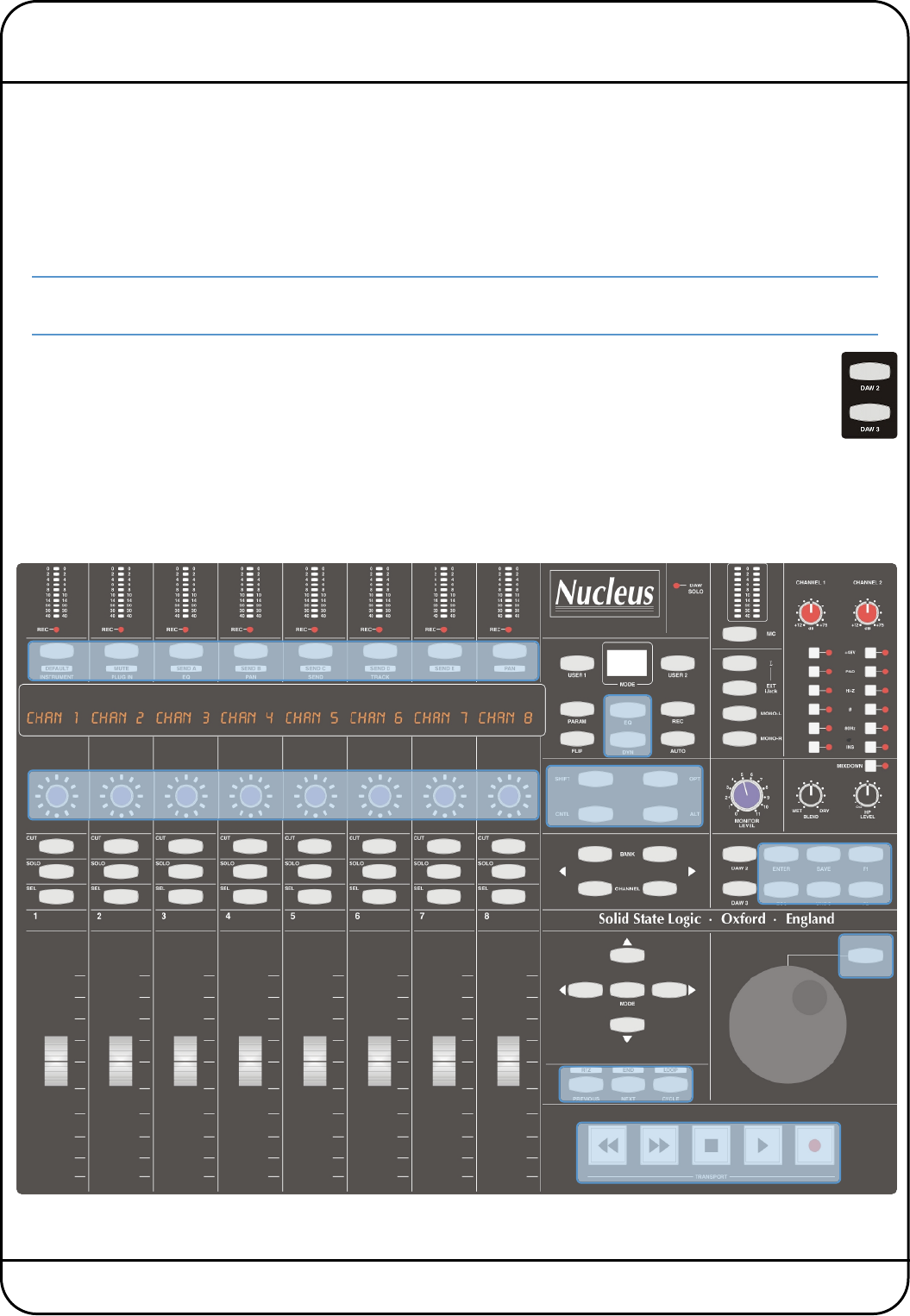
Nucleus User Guide Page 33
6. DAW Operations
This section provides an overview of Nucleus’ DAW control capabilities once Nucleus and the Nucleus Remote have been
fully connected, installed and configured. We will concentrate on the three main areas of control: the channel strip, the
transport, and additional master controls. You may want to keep a finger in the previous Section (Nucleus Remote), as many
of the DAW operations are defined by the Remote.
Layer Select
I
t is important to ensure that Nucleus is controlling the correct DAW Layer, in order to prevent unintentional adjustments
f
rom being made to the wrong DAW.
Note. Layers allow Nucleus to be connected to up to three DAWs, only one of which can be controlled by Nucleus at one
time, though all transports can be controlled simultaneously from one transport master.
The active layer is selected by pressing the DAW 2 and DAW 3 switches above the jog wheel. DAW 1 is controlled
when neither switch is selected.
SOFT KEYS
While most of the switches on Nucleus come with a function assigned, many of them can be altered to trigger any DAW
keyboard command, or any command within the appropriate DAW protocol. Switch functions can be altered via the
Transport / Utility page within the Nucleus Remote, as described in Section 5. The switches overlaid in blue in the diagram
below are the switches that can be altered – the blue labels indicate the switch labels within the Remote. As you read this
section, be aware that any of these switches might have had their function edited.
Mode Switches 1-16 (Default) and User keys 9-16 (User 1 and User 2)
EQ
DYN
SHIFT OPT
CNTL ALT
ENTER SAVE F1
ESC UNDO F2
Adv. Transport
Basic Transport
V-Sel User Switches 9-16 (User 1 and User 2)
Jog
wheel


















